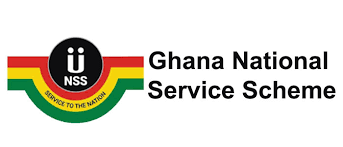The return of Gifty Oware Mensah, the former Deputy Executive Director of the National Service Scheme (NSS), marks the beginning of uncovering the full scale of fraud regarding her alleged involvement in the NSS payroll scandal.
The scandal, which involved over 81,885 ghost names on the NSS database, has been a subject of national concern, with many questioning the extent of financial losses to the state.
However, private legal practitioner Martin Kpebu, a member of the Operation Recover All Loot (ORAL) Committee, described her return as a significant breakthrough in the investigations.
According to Kpebu, Ms. Oware Mensah’s decision to return voluntarily saves the government the embarrassment of seeking her extradition. Her presence in Ghana, he noted, allows the legal process to take its full course without unnecessary diplomatic hurdles.
“Perhaps then, I believe that she’s willing to come and show that she’s innocent. Though, lawyers will tell you that she doesn’t have an obligation to prove her innocence strictly or technically. But in ordinary English and for our discourse in governance, we’ll say that she’s coming back because she wants to vindicate her name.”
Martin Kpebu Private Legal Practitioner
Financial Losses and Monthly Savings
The alleged NSS payroll scandal has been described as one of the biggest financial losses in Ghana’s public service history. The government’s initial audit uncovered that 81,885 names were removed from the payroll, leading to a reported monthly savings of GH¢27 million.
Kpebu emphasized that the gravity of the issue explains why it became a priority for the government. He also acknowledged the role of the Attorney General, Dr. Dominic Ayine, in pushing the case forward.

“This one is the Attorney General, Dr. Dominic Ayine, who is finding merit in the case. So recommendations should go to Dr. Ayine because if he didn’t find it merit in the ORAL report, he wouldn’t have escalated the case.”
Martin Kpebu Private Legal Practitioner
While the revelation of the ghost names is alarming, questions remain about whether actual payments were made to these names.
Kpebu reiterated that government authorities, including the Ministry of Finance, had already confirmed these figures based on the data from the NSS payroll.
“So, when the President took over, my understanding is that he asked the Finance Minister to request a list of the national service persons in order to pay from August last year. And the list that he got was 81,000 and some change, less than the previous figures. That information came about three weeks ago. So that’s how come I said there is a ballpark figure of about GH¢27 million that is being saved monthly.”
Martin Kpebu Private Legal Practitioner
Who Else is Involved?
While investigations have largely focused on top officials at the NSS, Kpebu believes that the scandal is likely more widespread, potentially implicating individuals at the regional level.
”Naturally, with time, it’s going to snowball to affect many other people. Because, from experience, you’ll see that these NSS bosses are not the people who do the computer keying. They are not the ones inputting names. They are not the people who do actual payments. So very soon, it’s just reasonable to expect that more people will be involved.”
“The burden they will carry depends on what they knew. If, hypothetically, you’re an IT person, you’re the one who has to open the system for certain inputs to be made. It’s presumed that before you open the system for someone to key in data, you will be interested in knowing what is being keyed in. If you see that out of nowhere, suddenly thousands of names are being entered when you open the system, common sense would dictate that you query it. Otherwise, that position will not be that high. You can’t give somebody a managerial-level appointment in charge of IT systems, and then anything at all can be put into the system, and the IT manager is not aware. It doesn’t add up.”
Martin Kpebu Private Legal Practitioner

The return of Gifty Oware Mensah is a turning point in the NSS ghost names scandal, but as Martin Kpebu pointed out, this is just the beginning. The focus now shifts to uncovering the full scale of the fraud, identifying all key players involved, and ensuring accountability.
The government’s investigations, led by the Attorney General, will determine the extent of individual culpability. However, Kpebu’s remarks suggest that beyond high-ranking officials, IT managers, regional officers, and other NSS personnel could soon be in the spotlight to answer serious investigative questions.
As Ghana continues to grapple with financial irregularities in public institutions, the NSS payroll scandal is yet another reminder of the need for stronger accountability mechanisms in state agencies.
READ ALSO; Prof. Bokpin Proposes a Recovery Pathway to Ghana’s Debt Crisis







